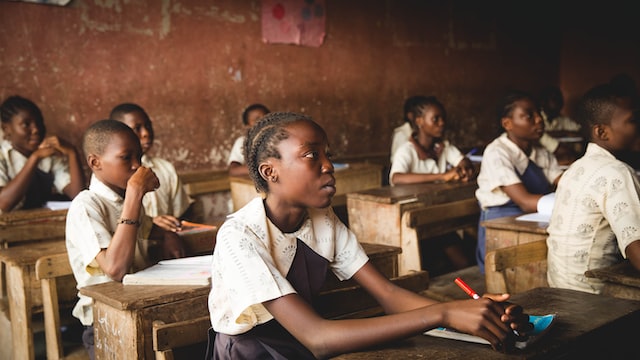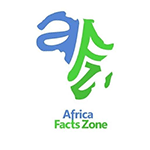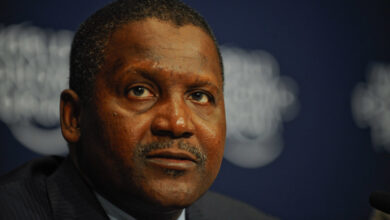The Most Spoken Languages In Africa – Africa Facts Zone

- Most Spoken Languages In Africa: KiSwahili (140 million)
- Hausa (120 million)
- Yoruba (50 million)
- Igbo (45 million)
The most spoken languages in Africa: are Afroasiatic, Nilo-Saharan, and Niger–Congo.
The Afroasiatic is spoken across North Africa, as well as the Horn of Africa and Western Asia.
It is estimated that about 400 million individuals in Africa and Asia speak 375 different Afroasiatic languages, making it one of the most spoken languages in Africa.
All of Afroasiatic’s subfamilies are derived from the Berber language.
In the Nilo-Saharan languages, there are more than a 100 distinct dialects.
The family’s speaking region includes the Nile Valley, northern Tanzania, Nigeria, and the Democratic Republic of the Congo.
The Niger–Congo languages spoken in West Africa is the largest than any other language family making it one the most spoken languages in Africa.
More than 3000 languages are spoken in Africa, according to different estimates. In one country, Nigeria, there are over 500 different languages spoken there.
Each of Africa’s 54 nations is home to a broad variety of languages, much like the continent’s many indigenous groups.
This huge country, however, has a few shared languages. To get a sense of the languages spoken in Africa, these are the top spoken languages in Africa.
Top spoken languages in Africa

Swahili: The Most Spoken Language in Africa
Around 150 million Africans in the African Great Lakes area of Central and Southern Africa speak Swahili, which makes Swahili the most spoken language in Africa.
A Bantu language also known as Kiswahili, t is the official language of Uganda, Rwanda, Mozambique, Burundi, and the Democratic Republic of Congo.
Also Read: French Speaking Countries in Africa
Because of its widespread use and long history, Swahili is a popular choice for many individuals learning a new language.
Swahili is unique in that it has remained unchanged from the early days of commerce, a feat that other languages have not been able to achieve.
In february 2022, the African Union (AU) adopted Swahili as an official working language.
Hausa:
One of Nigeria’s official languages, Chadic Hausa, is spoken by more than 50 million people throughout Africa as their first language, making Hausa one of the most spoken languages in Africa.
Hausa is a part of the Afro-Asiatic family of languages.
Nigeria is not the only country that speaks Hausa; it is also the language of Niger and Benin as well as Cameroon and its neighboring countries.
Trade, commerce, and business in Nigeria and the West African area have made Hausa one of Africa’s most widely spoken languages.
One of the few African languages to be taught at international universities because of its rich literary heritage.
Yoruba:
More than 30 million people in Benin, Nigeria, and Togo speak Yoruba, making it one of Nigeria’s most spoken and important languages.
People in Ghana, Ivory Coast, Liberia, and Sierra Leone also use Yoruba as their primary language.
Also Read: Equatorial Guinea the only Spanish Speaking Country in Africa
Oromo:
More than 30 million people speak Oromo, a Cushitic language descendent extensively spoken throughout Africa.
Oromo is mostly spoken in the Horn of Africa, Ethiopia, Kenya and Somalia as well as Egypt, making it one of the most spoken languages in Africa.
Ethiopia’s most populous ethnic group, the Oromo people make up more than 40 percent of the country’s total population.
Igbo:
More than 24 million people in Cameroon and Equatorial Guinea can speak Igbo, the Igbo people’s native language and one of Nigeria’s official languages.
The Igbo people are one of Africa’s biggest ethnic group, with more than 20 varieties of Igbo and a common ancestor in the Volta-Niger branch of the Niger-Congo family of languages.
Amharic:
An Amharic dialect is the second-largest Semitic dialect in Africa (after Arabic), with 25 million native speakers and three million emigrants.
Amharic is one of the rare languages that uses its own alphabet instead of Arabic or Latin letters since it is a native language.
It’s possible that this is why Ethiopian poetry, novels, and journals are flourishing in the city.
Zulu:
If you’re in South Africa, you’re likely familiar with the Zulu language.
Over ten million people can speak Zulu, making it the second most frequently spoken Bantu language after Nguni (Shona) and one of the most spoken languages in Africa.
Using the Latin alphabet, Zulu has a peculiar “clicking” sound because to its influence from the Khoisan language.
Shona:
Shona is Zimbabwe’s most widely spoken language, with about 10 million native speakers. It is a Bantu language.
In Zimbabwe, in addition to Shona being the official language, English and Ndebele are also widely spoken.
Source Credit: marstranslation.com





